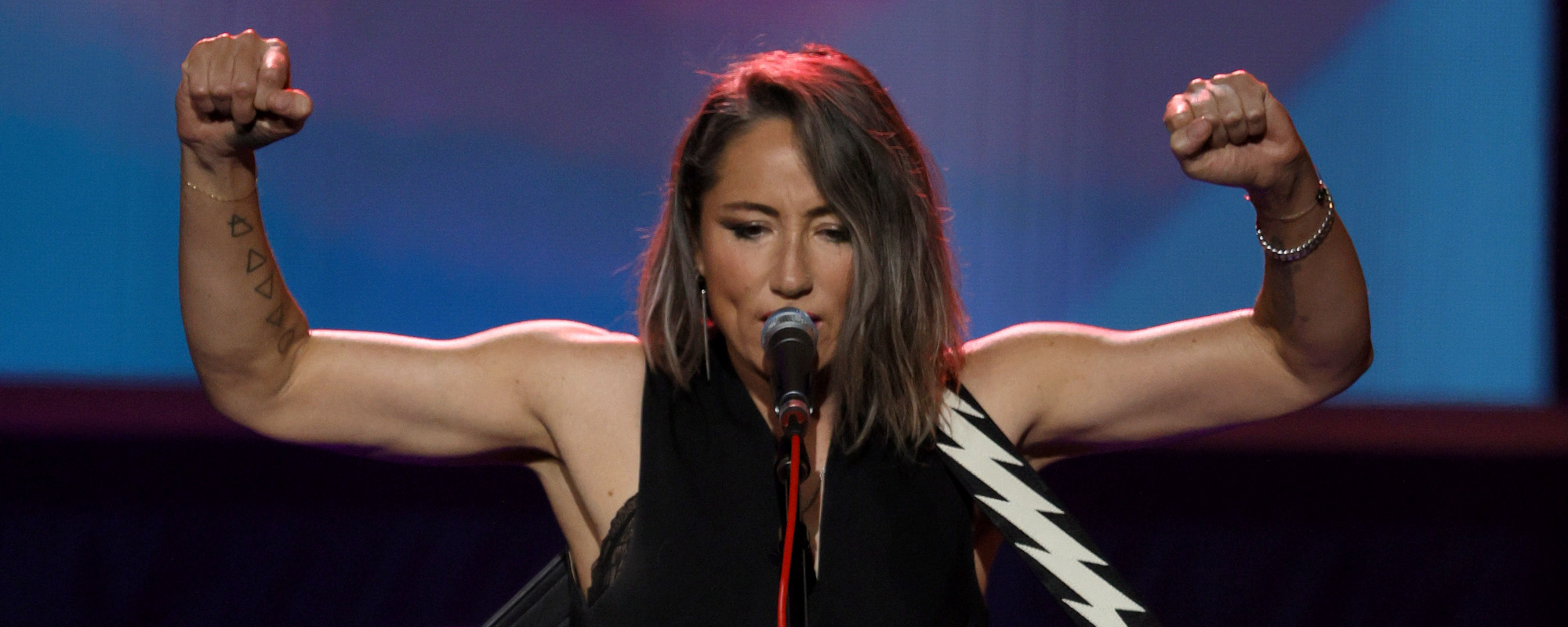Musicians find inspiration from a variety of sources. Many of them have tapped into famous works of literature for songwriting inspiration. From Taylor Swift to Bruce Springsteen, these five musicians have made allusions to classic novels in their songs.
Videos by American Songwriter
[RELATED: 10 Bands Who Took Their Names From Literature]
1. “happiness” (Taylor Swift) / The Great Gatsby (F. Scott Fitzgerald)
Taylor Swift often makes references to classic literature in her songs. She does so with the lightest touch in “happiness” from her 2020 album, evermore. Throughout the lyrics, Swift alludes to the plot of The Great Gatsby by F. Scott Fitzgerald. In one of the verses, she says she hopes her ex’s new partner is a “beautiful fool,” which Daisy Buchanan also says about her daughter in Fitzgerald’s work.
Elsewhere she references the “green light of forgiveness,” which Jay Gatsby uses in the novel to win back the affection of Daisy. “happiness” is a stellar example of Swift’s ability to take an established work and bend it to her own will. She pulls off the same balancing act in songs like “Love Story” and “Wonderland.”
2. “Off to the Races” (Lana Del Rey) / Lolita (Vladimir Nabokov)
Lana Del Rey has long expressed her love for the 1955 Vladimir Nabokov novel, Lolita. Elsewhere in her discography, she has a song actually named after the controversial work, but it’s her 2012 track “Off to the Races” that we are looking at today.
In the chorus of the song, Del Rey makes use of a famous line from the novel: Light of my life / Fire of my loins. The overarching theme of the track is forbidden – or at the very least toxic – relationships. The “Lolita” reference is the perfect addition to help drive that idea home.
3. “Wuthering Heights” (Kate Bush) / Wuthering Heights (Emily Brontë)
One of Kate Bush’s most famous tracks is named after Emily Brontë’s love epic, Wuthering Heights. Bush tells a similar story in her 1978 track. Heathcliff, it’s me, I’m Cathy / I’ve come home, I’m so cold / Let me in your window, she sings, taking on the plights of Brontë’s main character, Catherine Earnshaw.
4. “1984” (David Bowie) / 1984 (George Orwell)
As one could probably guess, David Bowie’s “1984” is a direct reference to George Orwell’s dystopian novel of the same name.
Much like the book, Bowie sings about a totalitarian government that robs its citizens of their ability to think freely. They’ll split your pretty cranium, and fill it full of air / And tell you that you’re eighty, but brother, you won’t care, Bowie sings in this foreboding track.
5. “The Ghost of Tom Joad” (Bruce Springsteen) / The Grapes of Wrath (John Steinbeck)
Bruce Springsteen comments on the political landscape of the mid-’90s in “The Ghost of Tom Joad” through the lens of John Steinbeck’s The Grapes of Wrath. Springsteen name-drops Steinbeck’s character, Tom Joad, in an effort to shine a light on the negative effects of capitalism, such as crippling poverty.
Photo by Michael Ochs Archives/Getty Images













Leave a Reply
Only members can comment. Become a member. Already a member? Log in.